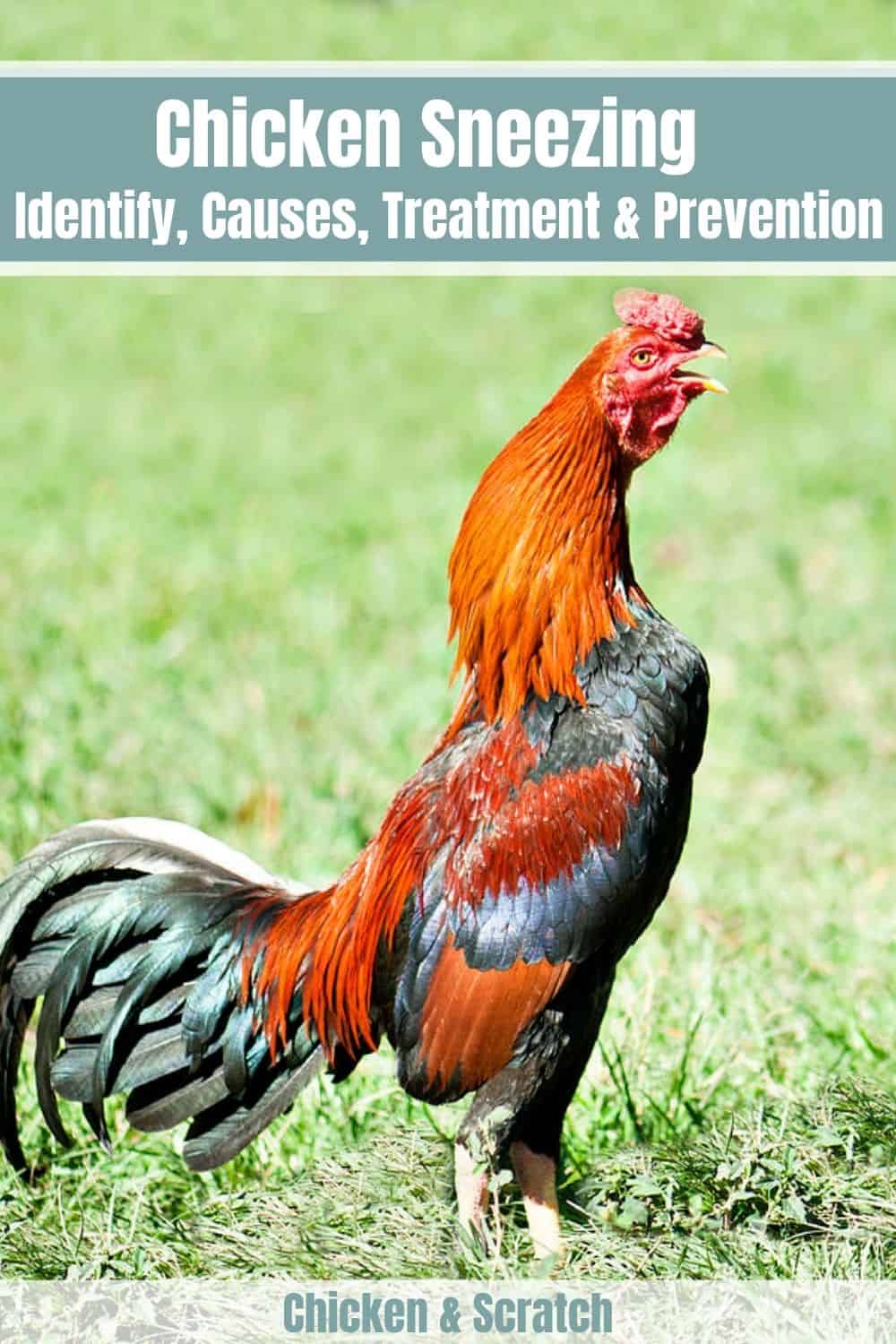Just like people, chickens can get sick, catch a cold, and sneeze. While sneezing is not always a reason to worry, ensuring everything is right is vital. Let’s learn how to prevent and identify chicken sneezing and what are some likely causes and remedies.
How To Identify Chicken Sneezing?
Chicken sneezing is not difficult to identify as they sound like any other animal sneezing, except they tend to make a high-pitched sound. You should check up on your chickens at least twice a day. And, if you notice a chicken sneezing frequently or alongside other symptoms, you should investigate the cause. While it can be just dust, it can also be a viral disease that could infect your whole flock.
You can also check the chicken’s appearance if you are unsure about the sound. Look out for any discharge coming from nose holes. Also, observe if the eyes are watery, leading them, in some instances, to have reduced vision with reddishness surrounding the ocular area.
Causes of Chicken Sneezing
Irritated Nose
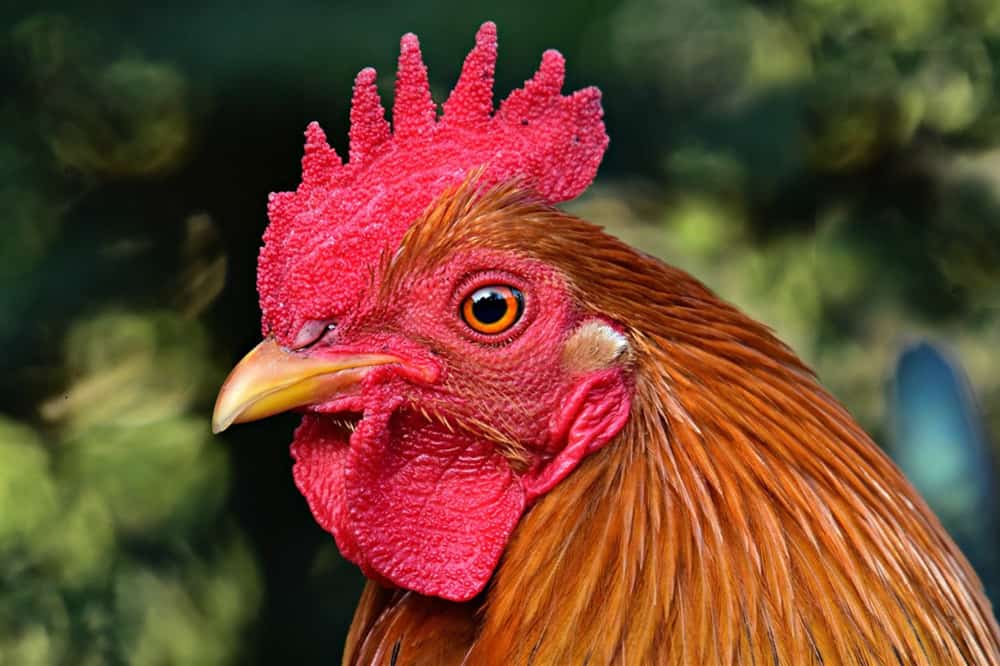
Sneezing is just the body’s means of clearing out the airways of dust and particles that can irritate our noses and get into the lungs. The same is with chickens. If they live in a dusty barn, they may sneeze more often because they need to clear their air paths more often.
Chickens can also sneeze when temperatures change abruptly. They have sensitive airways, and pollen can irritate them during the spring and make them sneeze. Another reason they might sneeze is because of the food they eat.
Their nose is very close to their beak, so some particles may enter their nostrils. The irritation can cause sneezing. Neither of the cases is a cause for concern. If other signs accompany sneezing, you should instantly ensure the potential disease is diagnosed and treated correctly.
Bird Flu
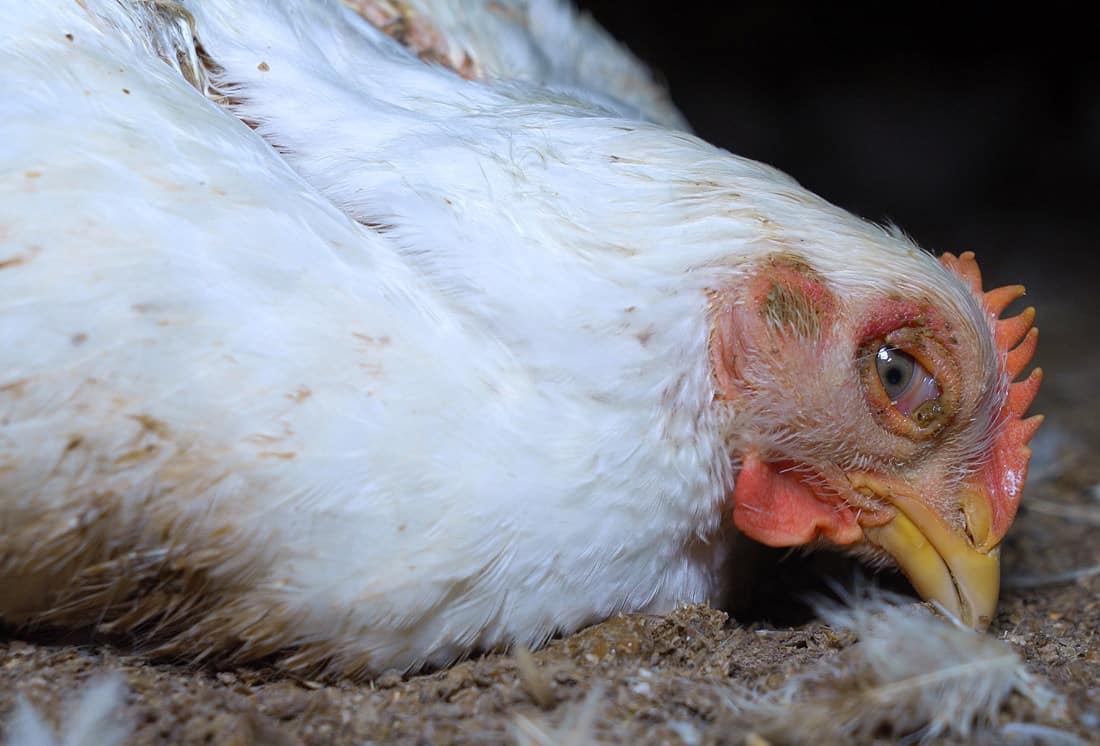
Bird flu is a potentially fatal disease that can also affect humans. So, you should be mainly on the lookout for possible signs. It’s not very typical, but one of the signs can be sneezing.
Some other signs that usually occur are a decrease in the production of eggs and swelling of the head, combs, and wattles. It also affects the general change in the manners of the chickens. They may become lethargic and lose their appetite.
If you see any of these signs, you should take your bird to a vet as soon as possible. As it can affect humans, watch out for any unusual signs that may appear so you can get a cure instantly if needed.
Mycoplasma Gallisepticum
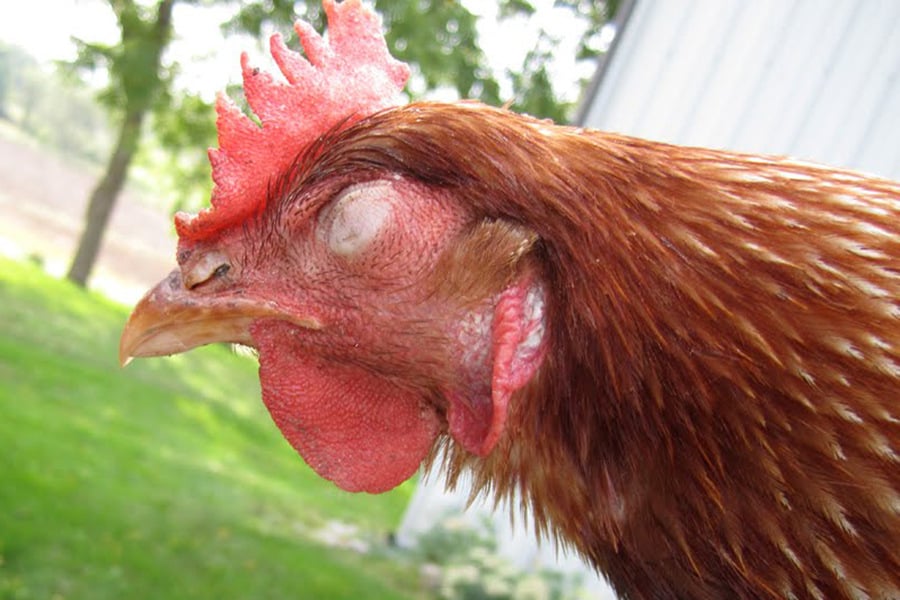
This is a bacterial disease that is typical in chickens. Its symptoms are: Sneezing
Wheezing
Coughing
Nasal discharge
Watery eyes
Reduced appetite
Weight loss
If you notice these signs in your chickens, separate them from the rest of the flock. This disease can spread relatively quickly.
Infectious Coryza
Infectious Coryza is another disease caused by a bacterium. Chickens may have trouble breathing and will not eat regularly or at all.
Swelling may occur around their eyes and beak, and signs of conjunctivitis may appear. It’s not deadly but highly infectious, as the name tells us. Separating the chickens with these signs from the rest of the flock is crucial as soon as you notice them.
Colibacillosis
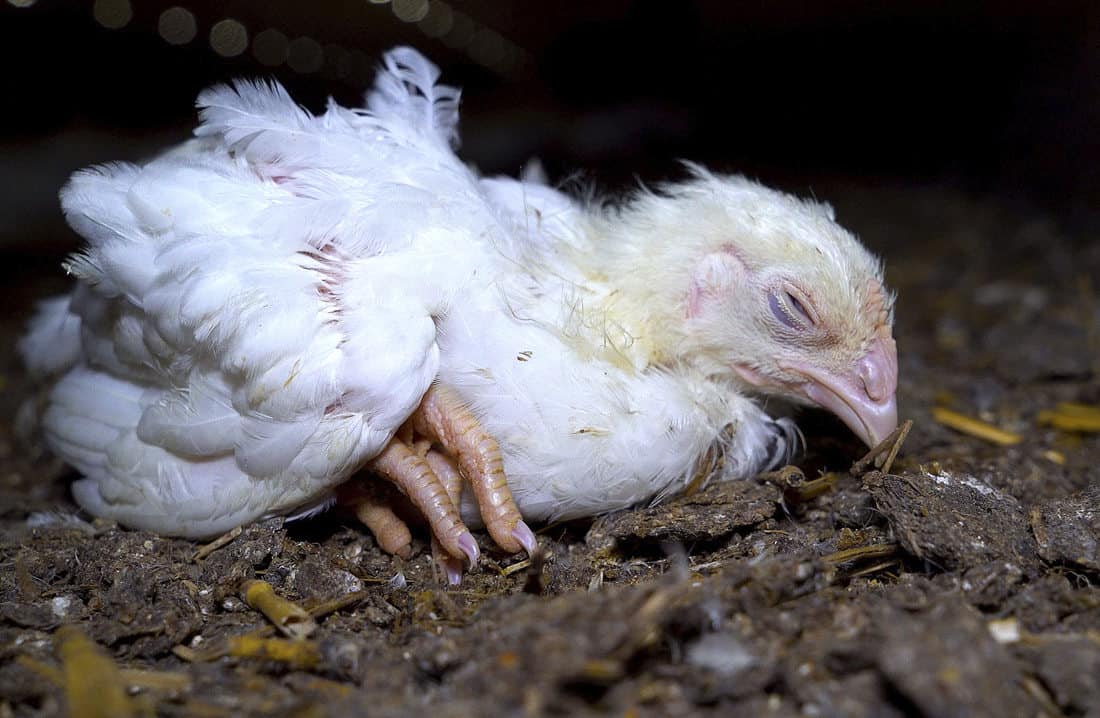
Colibacillosis is an E. Coli infection that can cause harm to the respiratory tract of chickens. This bacterium can cause digestion issues, too, so your chickens might get watery diarrhea.
Infectious Bronchitis Virus
This is a highly infectious virus that affects poultry. The first signals are usually sneezing and coughing. If a chicken is infected, you may hear wheezing and notice a discharge from the nose.
They can have trouble breathing. Infected with this virus can have watery eyes and may refuse to eat and drink.
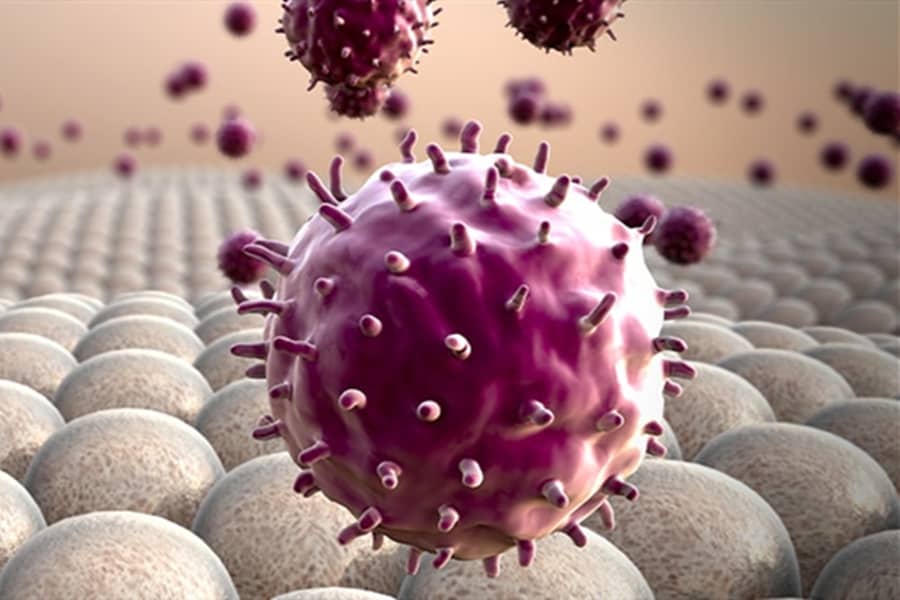
Newcastle Disease
Newcastle disease is an infectious disease that can be deadly if not treated promptly. The indications are similar to other respiratory diseases. Diagnosing it as soon as possible is crucial because it can cause paralysis and death if left untreated.
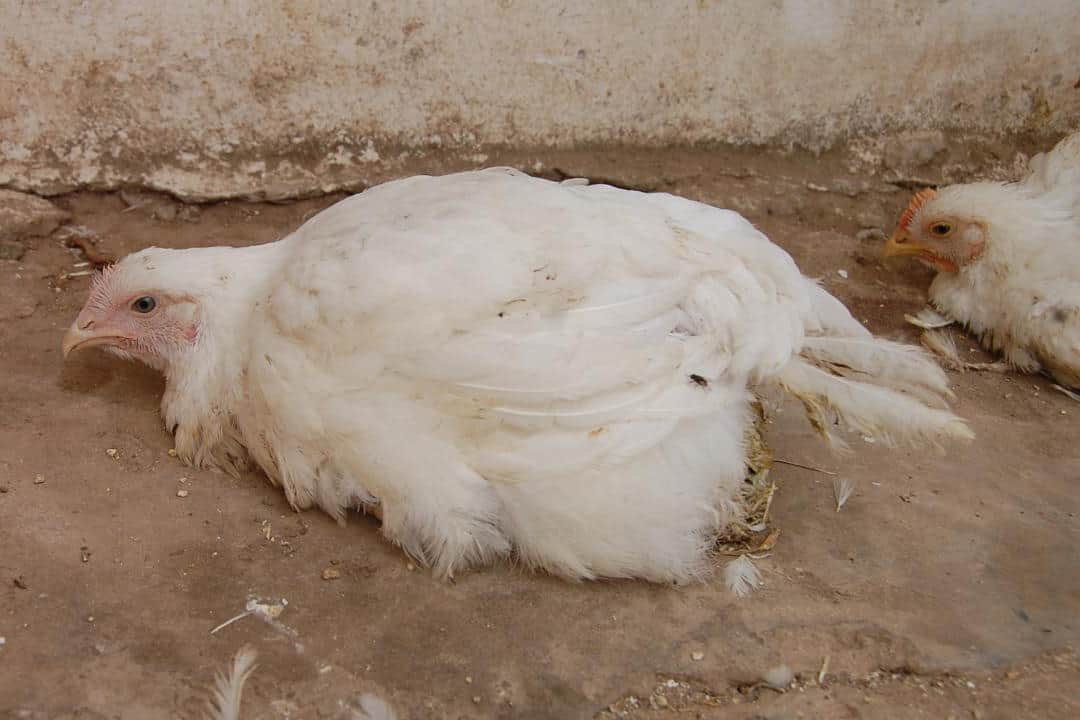
Gapeworm
A parasitic gapeworm is a parasite that lives in the trachea of chickens. It blocks their airways. The chickens will sneeze and cough relentlessly to try and get rid of it. However, it
takes work.
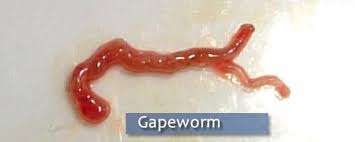
Gapeworms can grow bigger and take more and more space for the windpipes of chickens. Eventually, it will suffocate them if left untreated.
Infectious Laryngotracheitis
Ťhis is another highly infectious respiratory illness that can affect chickens. The herpes virus causes it. It can be deadly if it is not treated, but if you notice the symptoms on time and treat the chickens, they can recover gradually.
Treatment Of Chicken Sneezing
Isolate Chickens With Symptoms
As soon as you notice any signs of respiratory disease, you should isolate the chicken that shows it. Give them prompt medical attention. Early diagnosis and cure are crucial for keeping your whole flock healthy and safe.
Antibiotics
When it comes to diseases that are caused by bacteria, antibiotic treatment can help destroy the bacteria from the organism. Depending on the condition’s stage, treatment can last from a few days to a few weeks until the chickens are fully recovered.
Some vets may recommend antibiotics to prevent secondary bacterial infections in chickens that have a virus. Although antibiotics don’t work on viruses, they can prevent secondary bacterial illnesses.
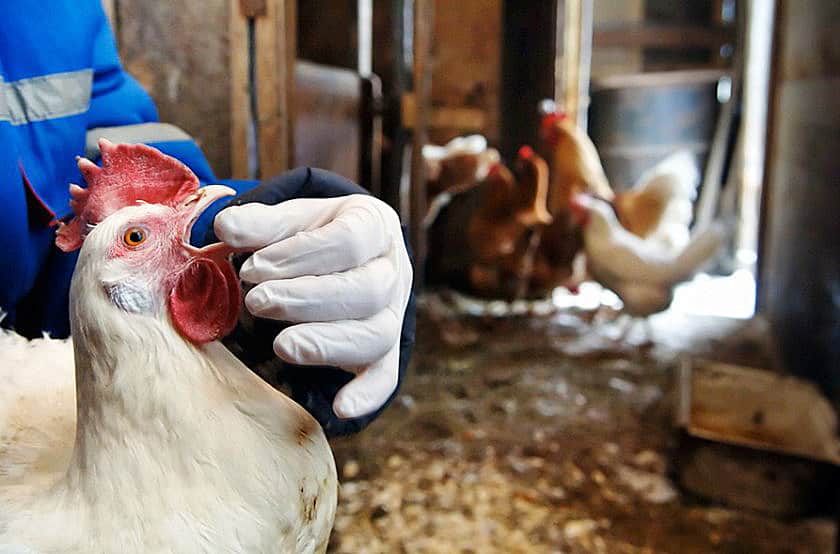
Antiviral Medication
Antiviral medication is not a typical remedy for chicken sneezing since bacterial or viral infections cause most respiratory symptoms in poultry.
However, a veterinarian may prescribe an antiviral medication if your chickens have been diagnosed with a specific viral disease like Newcastle’s Disease, which can cause severe respiratory signs such as wheezing and coughing, among other flu-like symptoms.
Bring them to the Vet
Bringing your chickens to the vet is important for several reasons when they exhibit respiratory signs like sneezing:
- Proper Diagnosis: A vet can conduct different tests, including the bacterial culture of nasal swabs and serum blood tests. It allows the proper label of what precisely ails the flock helping prescribe specific treatment plans.
- Prevention Measures Investment: In the long run, prevention is better than cure. Invest in actions that will eliminate your flock’s respiratory sickness risk.
- Expert Advice on Preventative Measures: Chickens living locations or factors which may facilitate future outbreaks can be identified; thus, vets can advise the best control practices tailored towards each situation, ensuring full preventive security experienced within clean, well-maintained coops.
Therefore, establishing relationships with avian specialists during problematic situations saves time and effort. This leads to upped production, disease-free herds, and a healthier flock!
Prevention for Chicken Sneezing
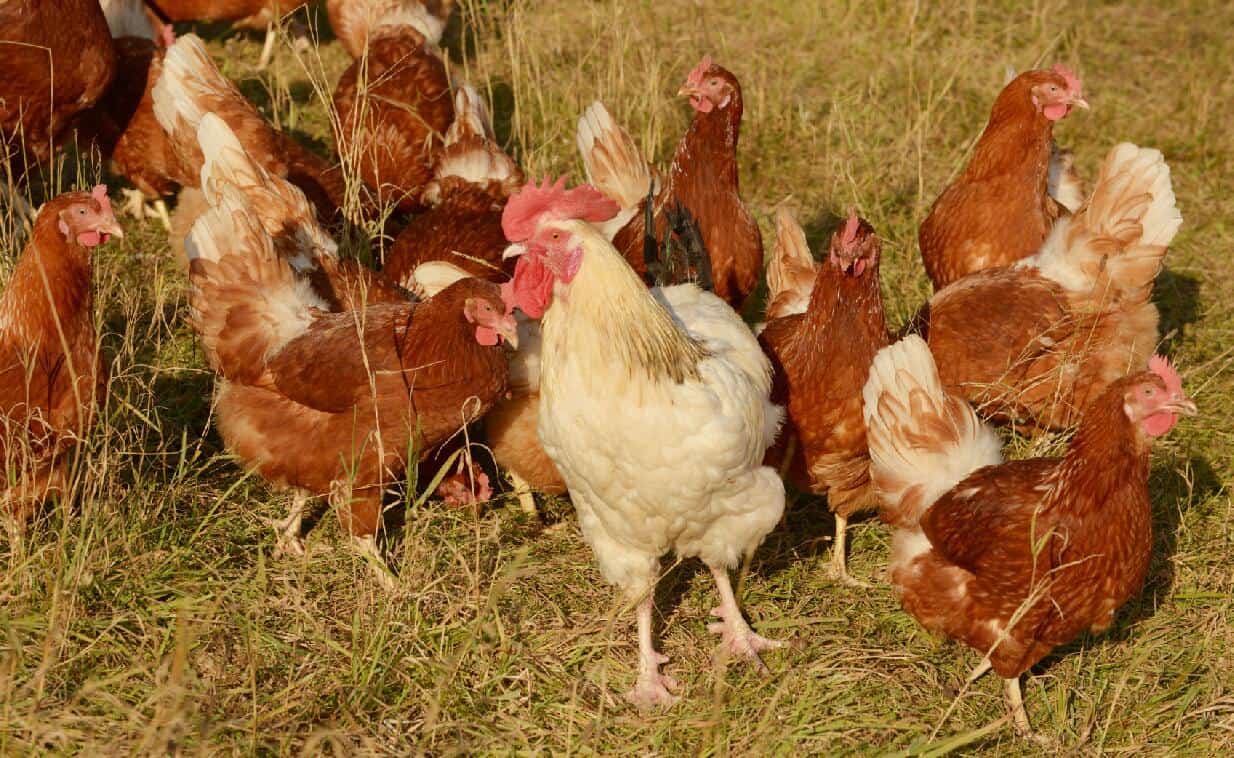
Vaccination
Vaccination is the easiest and the most essential way to prevent many respiratory diseases, like Newcastle disease, Infectious Bronchitis, and Infectious Laryngotracheitis. Make sure to vaccinate your whole flock as soon as the vaccine should be administered. Vaccinating the flock can save you and your chickens so much trouble and worry.
Sun Exposure
Sun is an excellent source of Vitamin D, and it’s as vital for chickens as it is for us. Exposing them to the sun during the day will not only help them lay good eggs more easily. But it will boost their immunity and prevent potential illnesses that could damage their health.
The coop doesn’t have to be sunny, but you should allow your chickens to run around in the backyard for a few hours daily.
Quarantine
If you present new chickens to your flock, you should quarantine them for two weeks to a month. Put them in a different place because they may have some infectious disease that is yet to show symptoms.
This protects your other chickens, and it will be easier for you to watch for any signs of sickness.
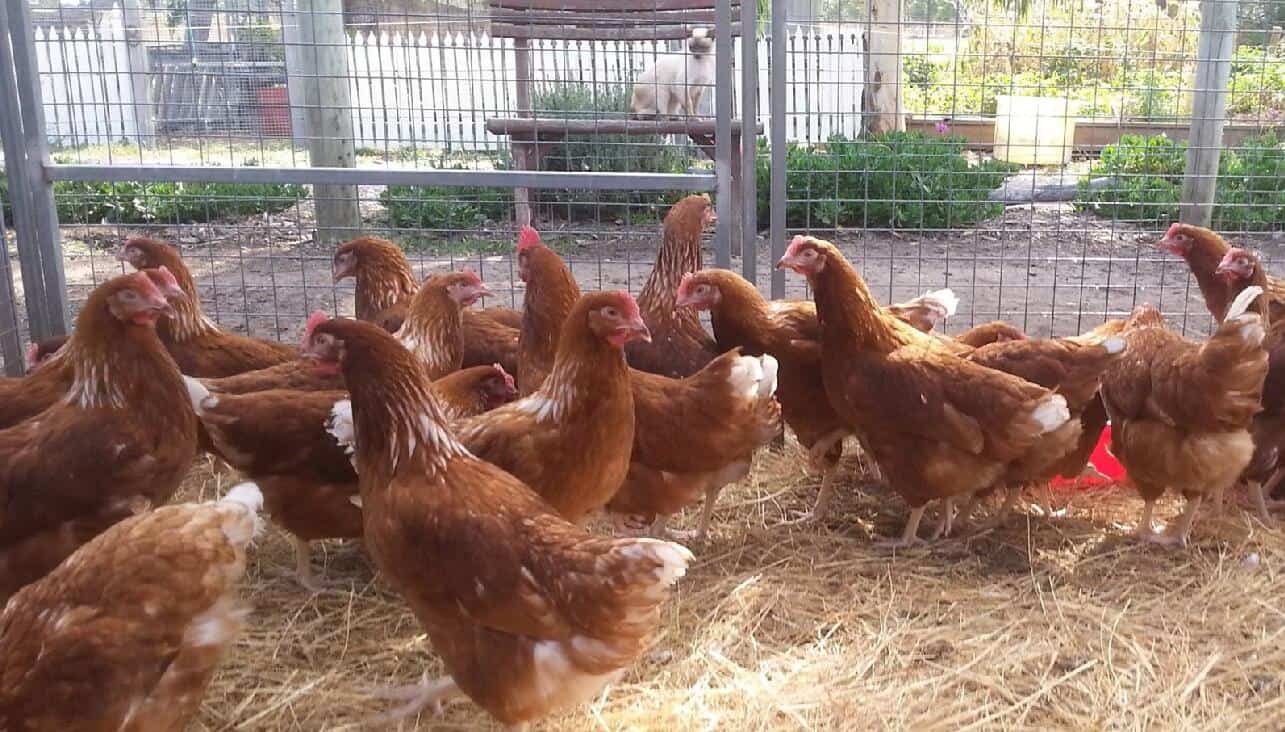
Diet and Water Intake
Your chickens should be fed high-quality and fresh food. Follow the dietary requirements the chickens need to have according to their age.
Another thing that is important to mention is that you should regularly change the water. Having a healthy diet and drinking plenty of fresh water can boost their immune system.
Coop Hygiene and Ventilation
It’s vital to keep the place where your chickens live nice and clean. If their coop is dirty and not cleaned often enough, the dust can cause chickens to sneeze.
Some diseases can spread through chickens’ feces, like Newcastle disease. Wastes also emit ammonia that can cause respiratory infections in chickens. It’s not exactly pleasant for humans, either.
It’s also vital to ventilate the coop properly. They should get plenty of air and oxygen. It will reduce the chances of them sneezing.
Take Care of Your Chickens
Chickens are relatively easy to maintain. They don’t need a lot of company and care, but you should make sure to take care of them properly and regularly.
Apart from cleaning their coop, ventilating their living space, letting them run around in Sun, and vaccinating them, you should spend some time with them every day. You will get to know how they usually behave, so you will be able to notice any irregularities in their behavior, like sneezing.
Conclusion
While sneezing in chickens is usually not a reason to be concerned. However, it can be serious if paired with other symptoms. So, with these tips on how to deal with chicken sneezing, you can eliminate the risk in no time!

Joseph Hudson has been raising chickens for over 15 years. In 2018, he completed the Agriculture & Natural Resources program at Mt. San Antonio College. He currently raises over 1400 chickens on his 7.5-hectare farm. He keeps sharing his experience on raising healthy and happy chickens on Chicken Scratch The Foundry.
